Solar radios connect South Sudan’s farmers together to fight hunger
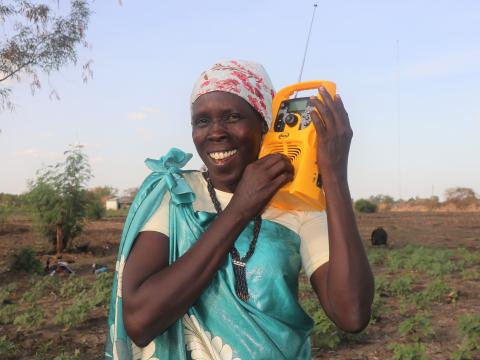
“Before the COVID-19 pandemic, farmers groups with around 25-30 members gather together as World Vision staff train us on basic agronomic practices like doing and managing nursery beds, organic crop pests and disease prevention and control, soil and water management. The pandemic stopped everything”, says Nyaluk Piot, a 55-year old mother of four.
She adds, “Farm work requires daily practice for improved yield, especially for us learning to shift from small-scale to large-scale farming.” Many farmers already lost hope during the pandemic. Nyaluk said that working and learning together gives them motivation.
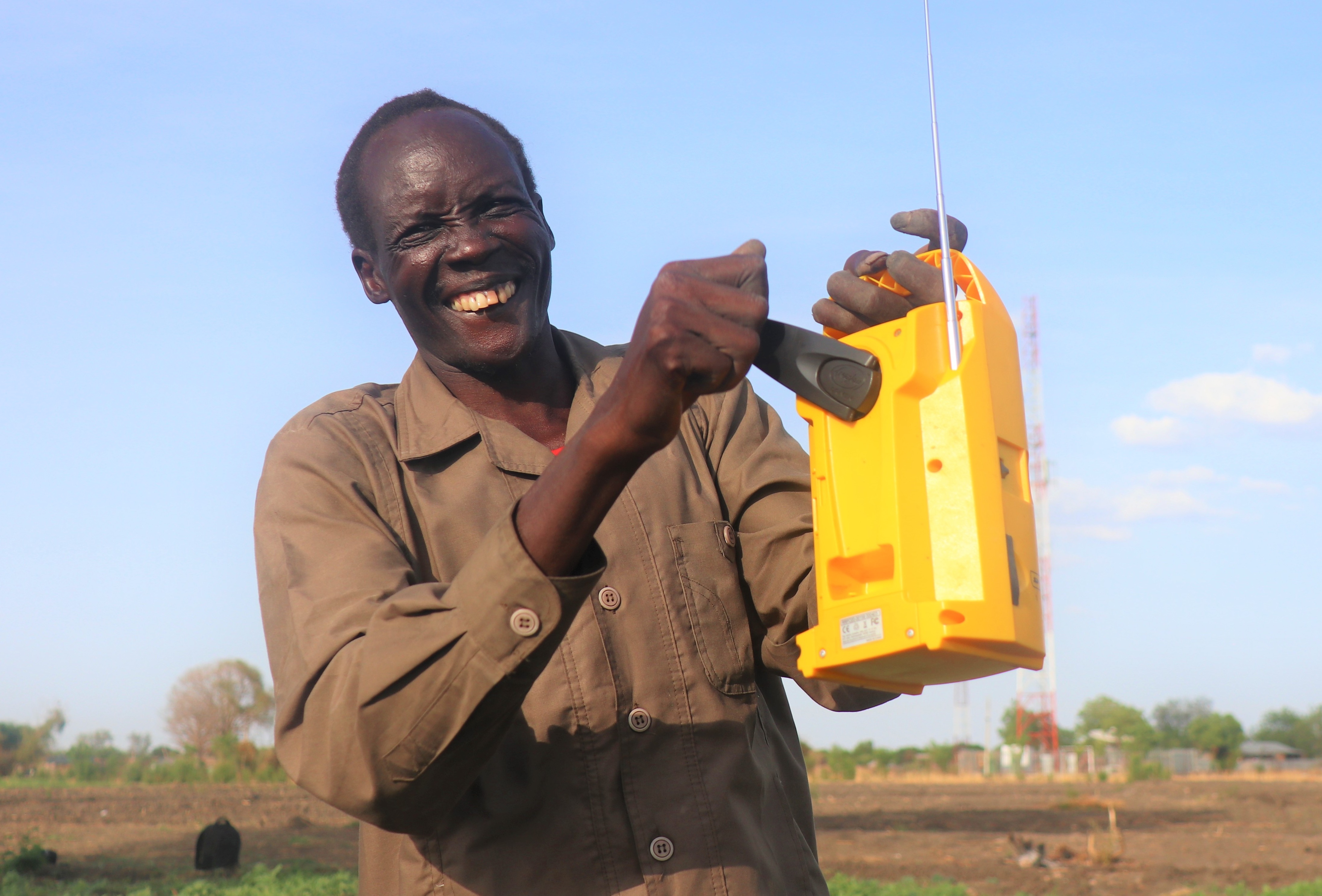
“When the training and social gatherings stopped, it shattered our hopes. We depend on our farm products for income. But without the support, we can only do little and not improve as farmers”, she says.
World Vision, in partnership with the Food and Agriculture Organization (FAO), has distributed 20 solar-powered radios to farmers groups composed of 200 members, 84 are women in Malakal, Manyo, and Renk counties of Upper Nile State. The initiative aims to help disseminate agricultural information to farmers through radio broadcasts.
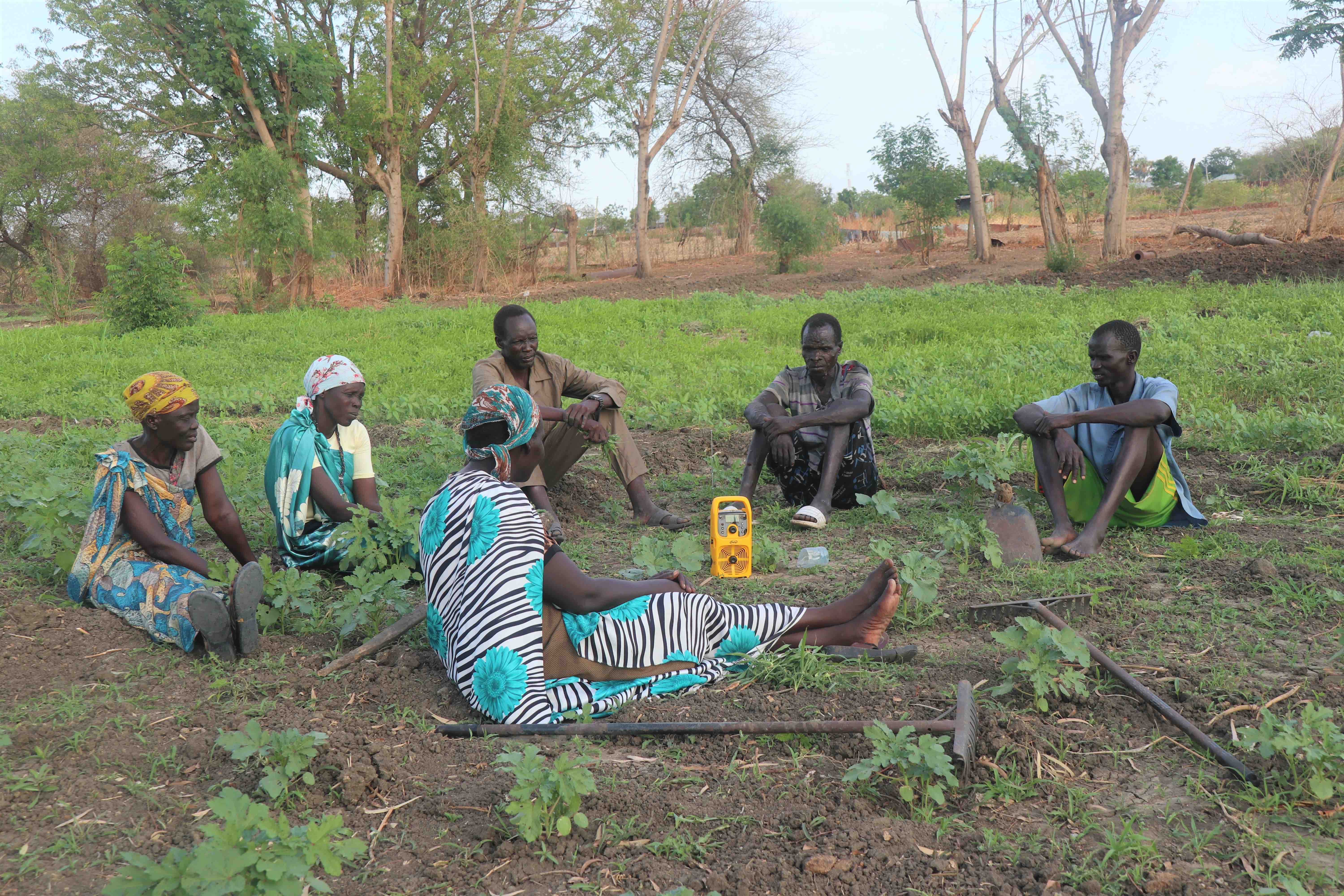
World Vision’s Food Security and Livelihood Coordinator Gwolo Manase Modi explains, “The radio talk shows enable farmers to be updated of climate changes and be able to reserve and schedule resources based on the seasonal calendar.”
“They also learn more on the adverse weather conditions such as heavy storms. These help them determine what type of crops should be grown that can survive the weather”, he adds.
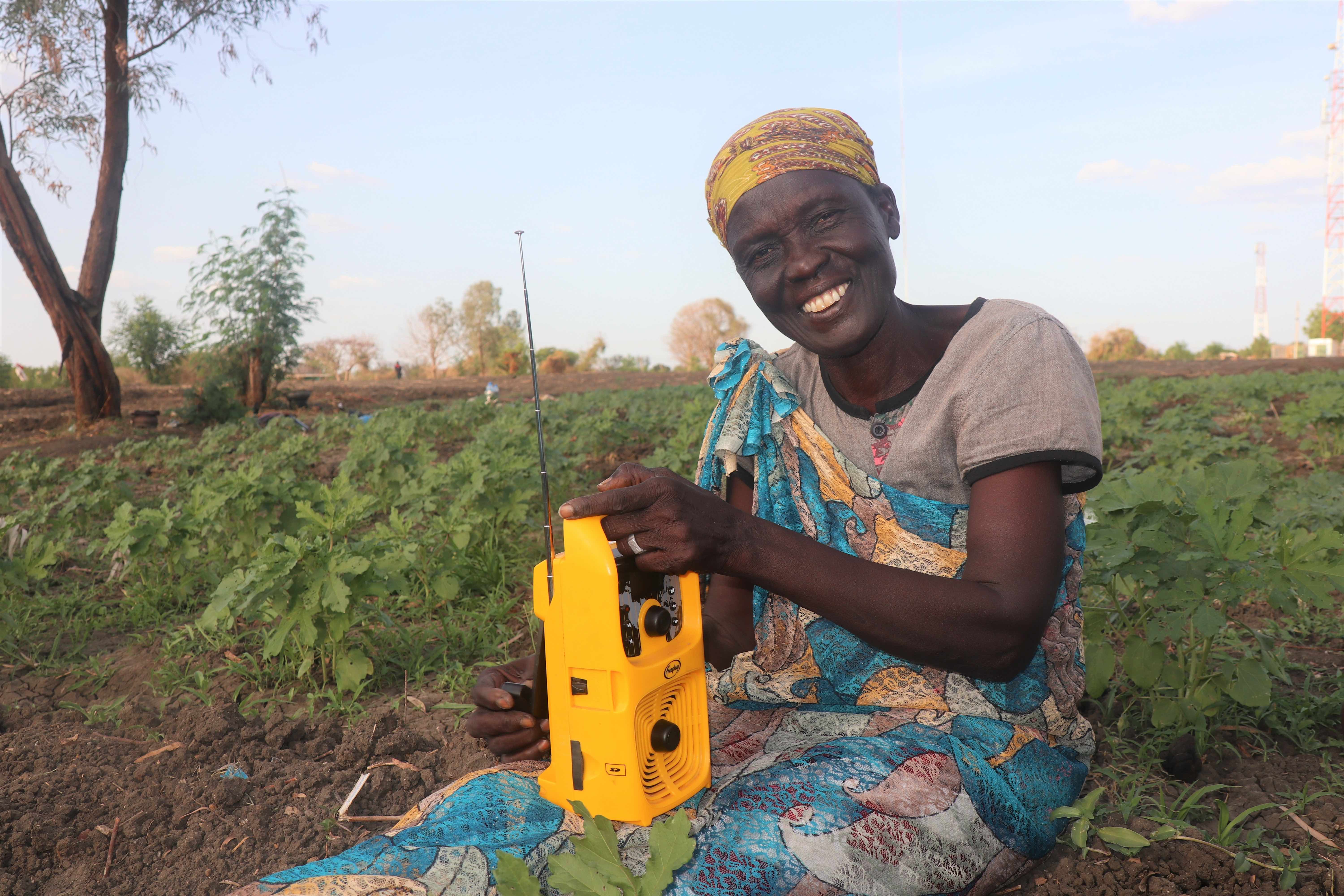
“Before World Vision introduced us to improved farming practices, most of us had no idea. We depended on the market for everything. I used the little money I earned from doing house chores for people to buy food. If I did not work, my family was hungry”, she shares.
“The learning was difficult to adopt in the beginning. I wanted to give up, but my children’s needs and the persistent efforts of the staff for us to be self-reliant gave me courage. I started a small farm by the river, and for three years, my family was supported by its crops”, adds Nyanluk.
We meet at the farm every day to listen to the broadcast as well as do our work. In a time like this, without the radios, farmers like us would not get information we needed to support our families.
World Vision’s training and demonstration plot approaches taught farmers to apply soil and water conservation practices such as the use of sunken seedbed during dry season production to retain adequate water for vegetable growth, cover cropping to improve soil water availability, and mulching to maintain soil water moisture content for crop growth.
She adds, “We indeed learned so much but still need help especially during the dry season. We are particularly excited for the solar radios when gatherings are still prohibited, as we continue to fight the hunger crisis.”
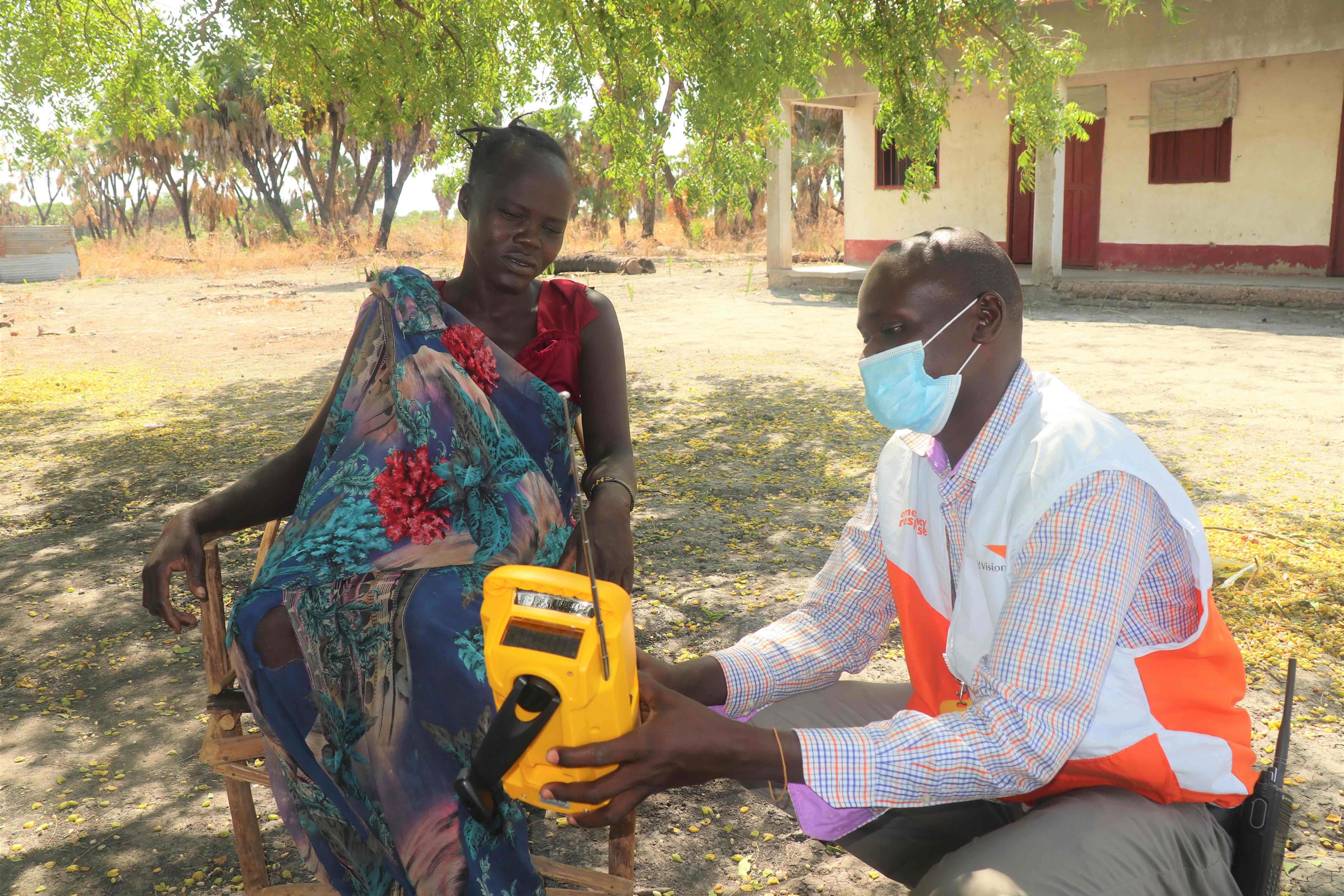
The radio program airs every day at 5:00 in the afternoon and farmers gather in social distance to listen and learn. “We meet at the farm every day to listen to the broadcast as well as do our work. In a time like this, without the radios, farmers like us would not get information we needed to support our families”, Nyanluk says.
Another farmer, Nyaw Arop, 40-years old and mother of seven says, “When we thought all hope is lost, God brought yet another thing. We truly appreciate the support. At my age, I need a daily reminder of important things like farming tips. Having this radio keeps me up to date.”
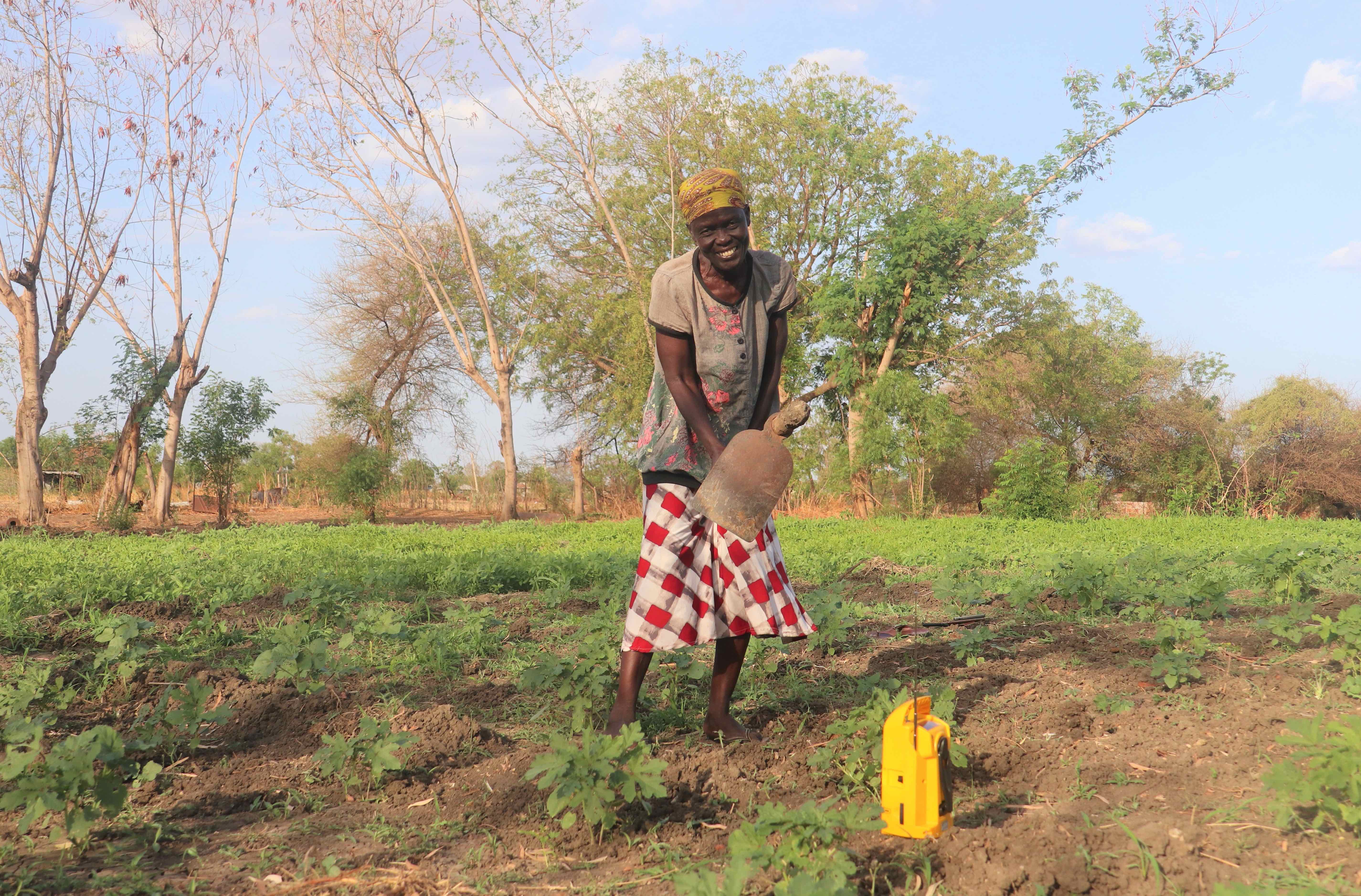
Story and photos by Scovia Faida Charles Duku, Communications Coordinator